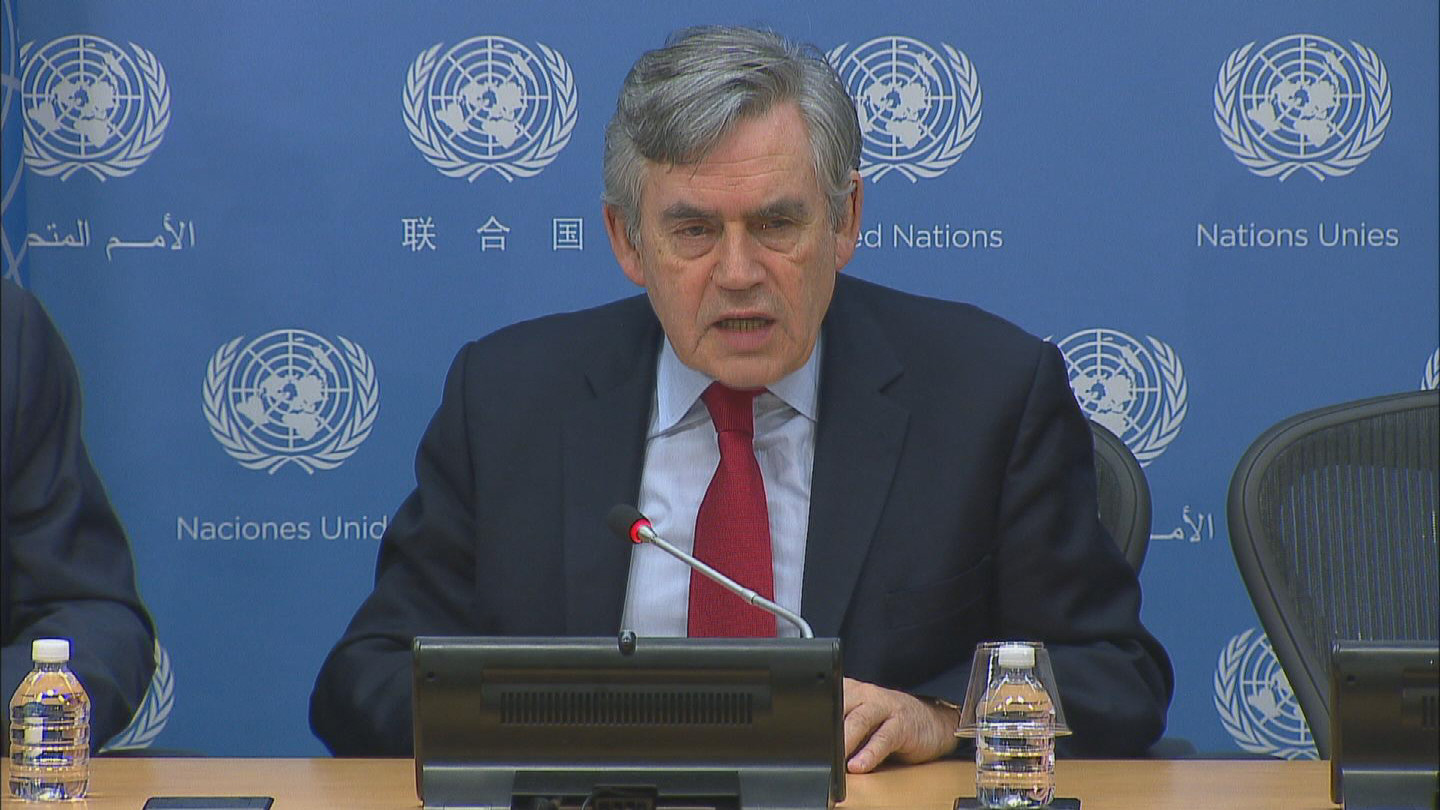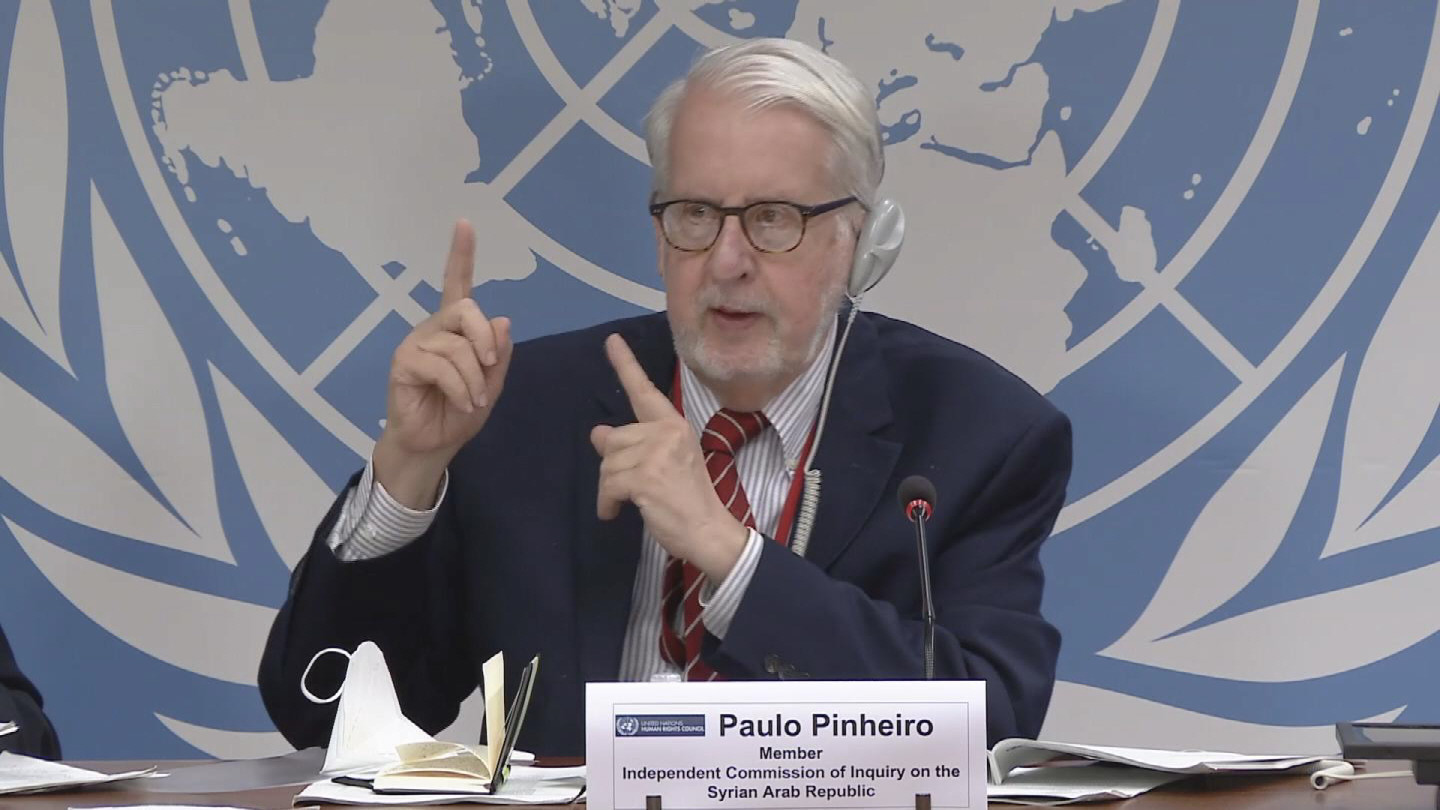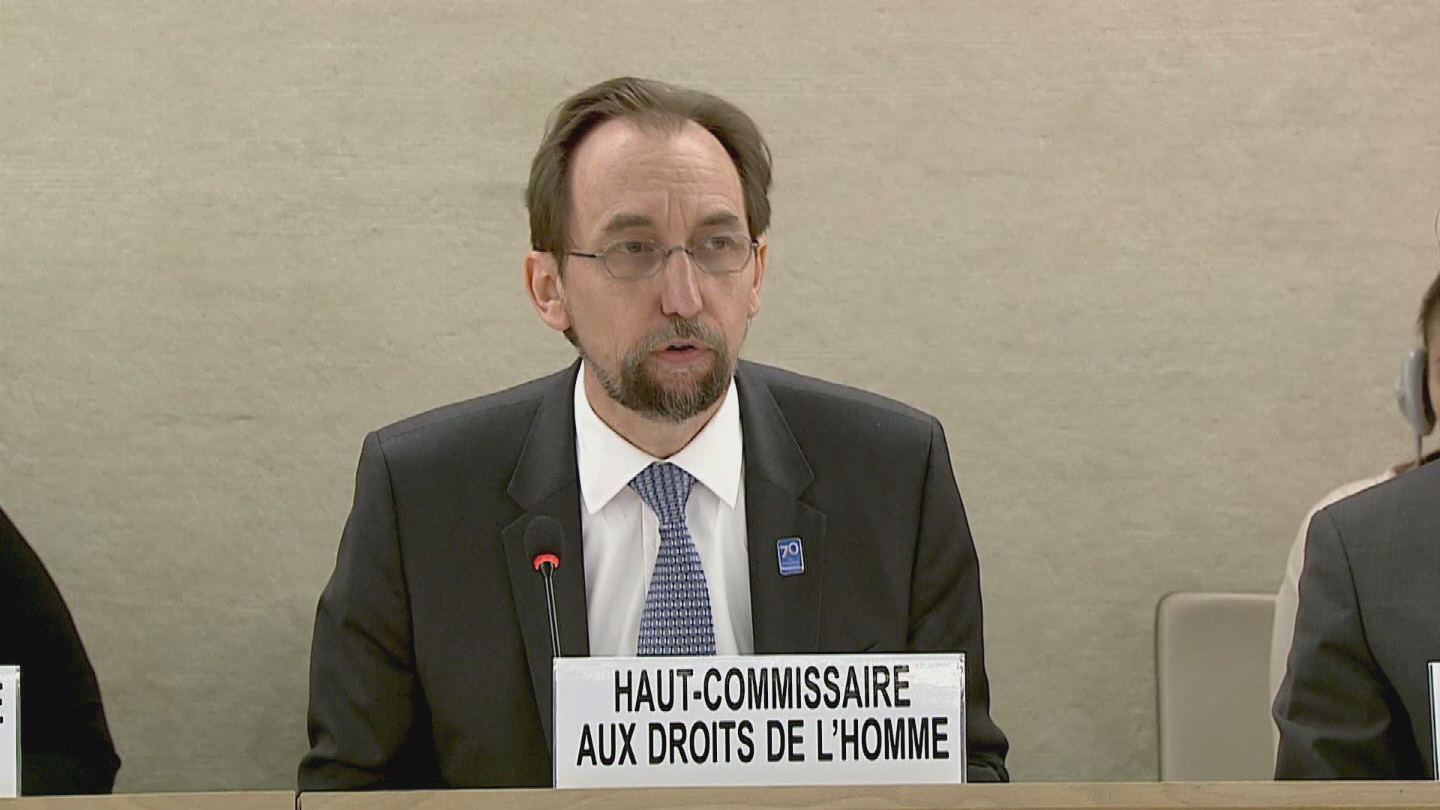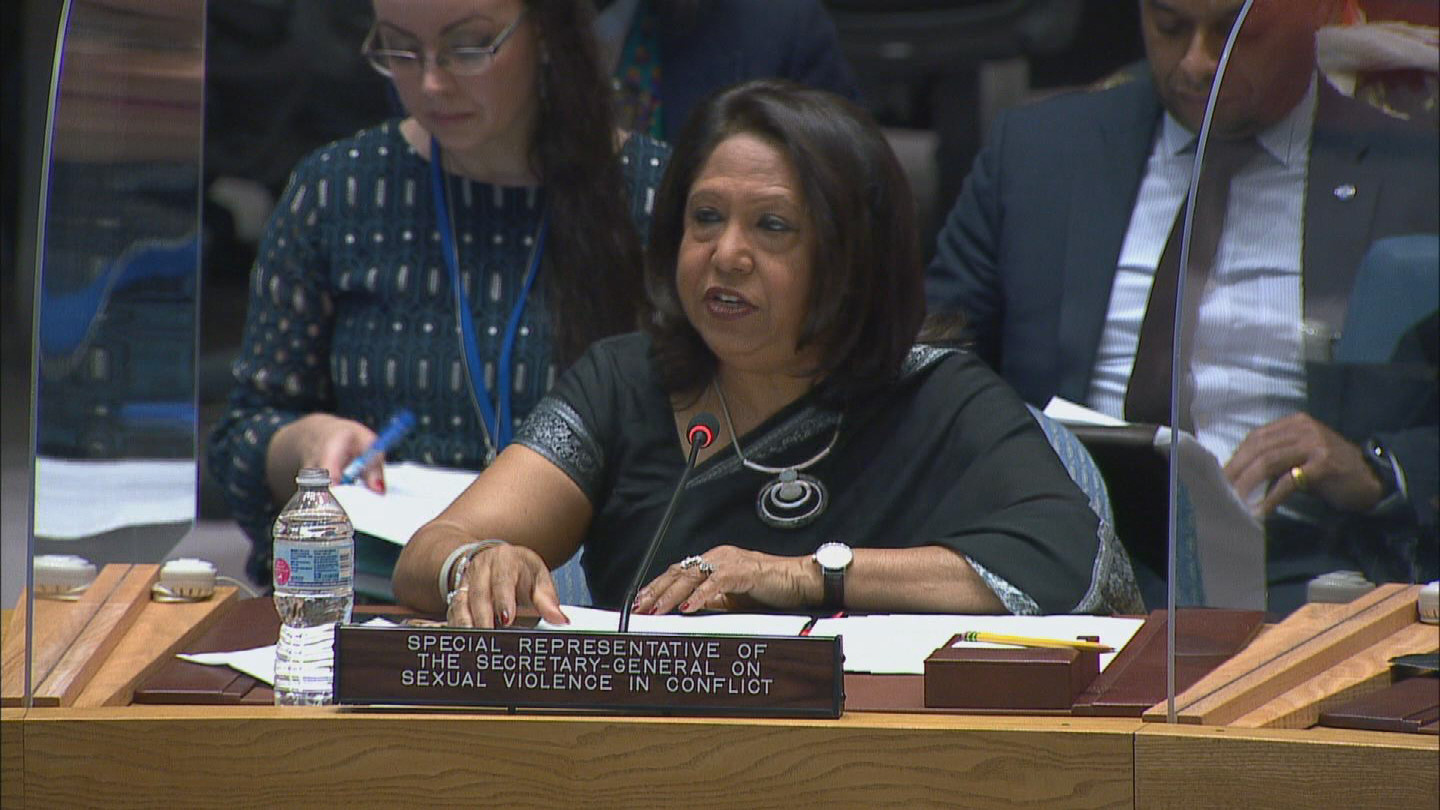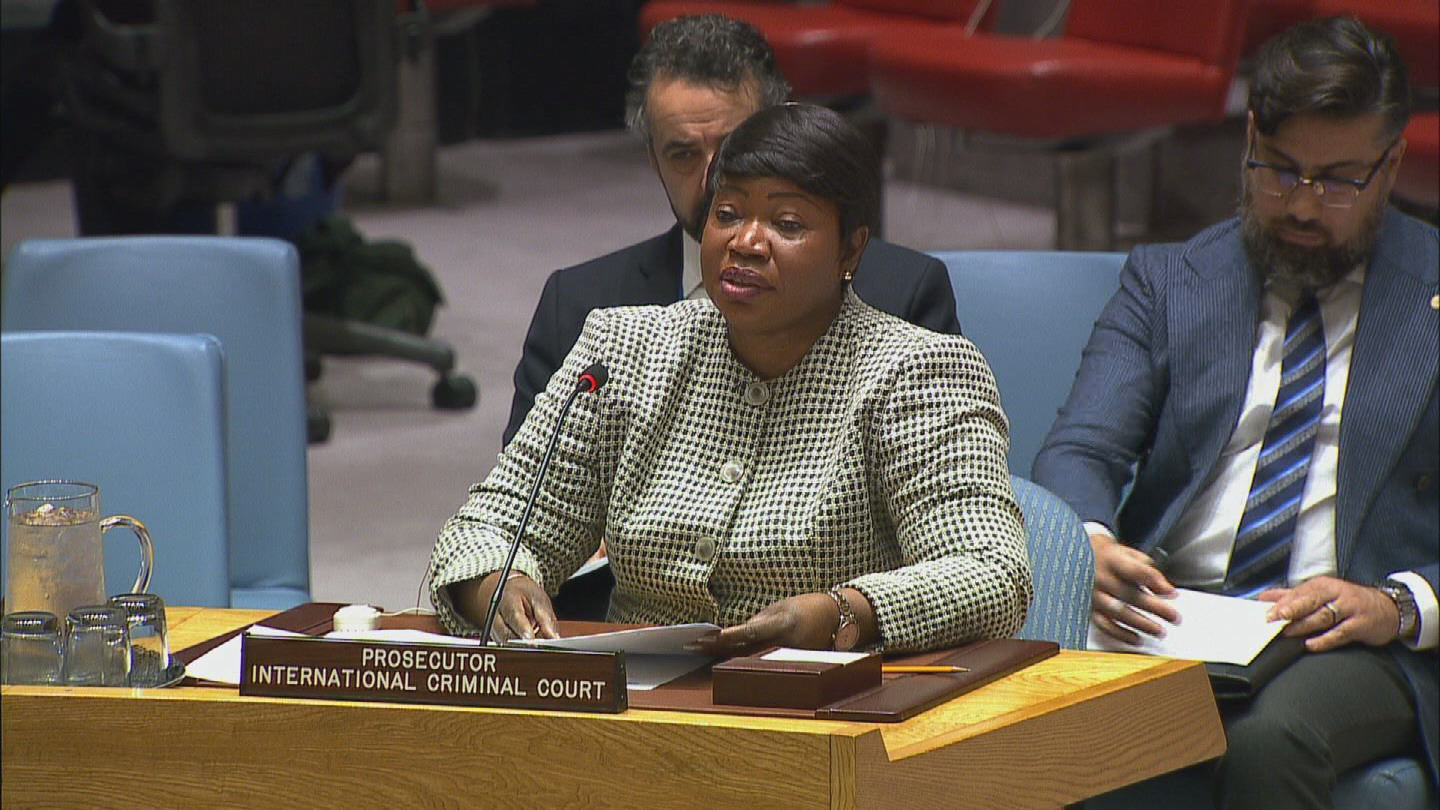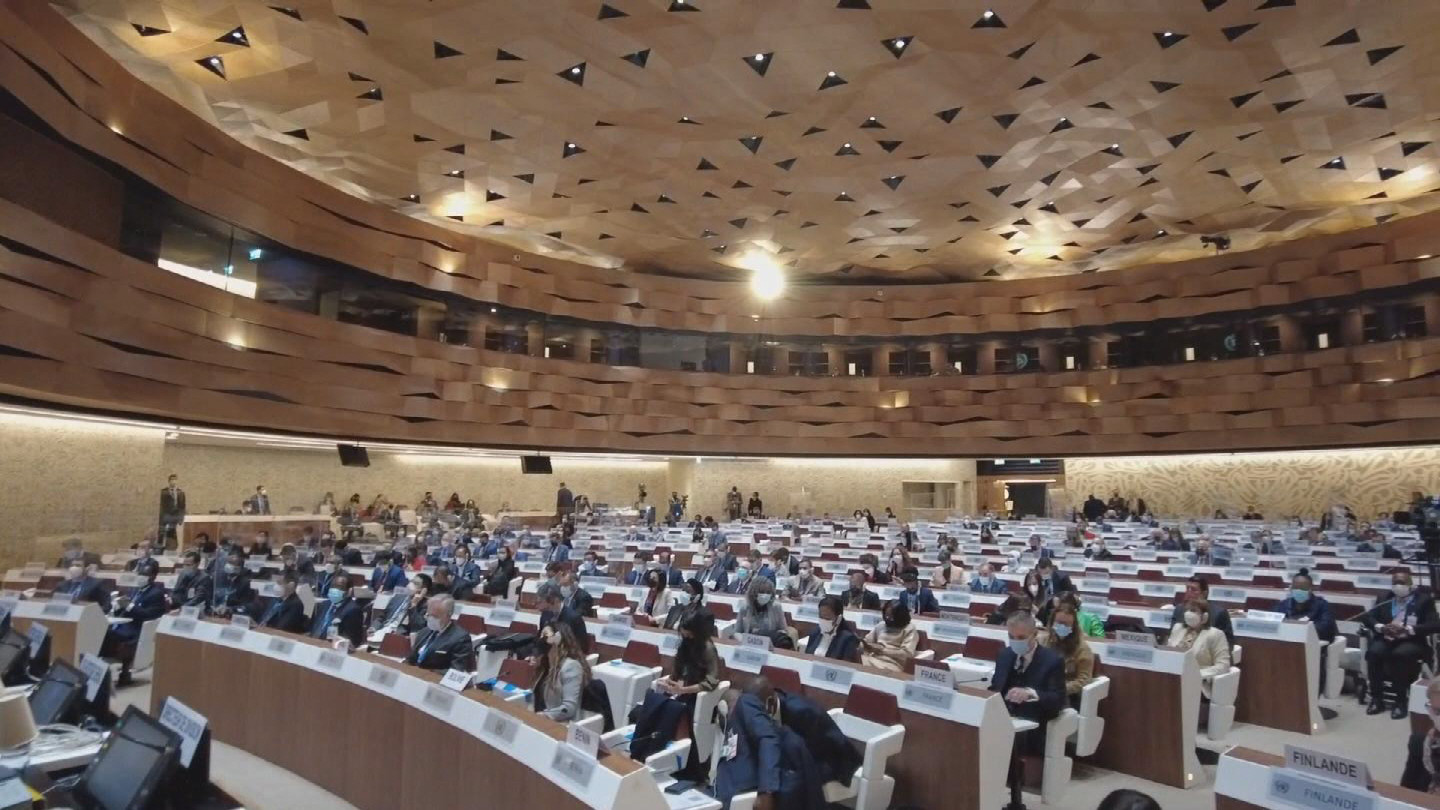UN / SYRIA COI
Download
There is no media available to download.
Share
STORY: UN / SYRIA COI
TRT: 02:22
SOURCE: UNIFEED
RESTRICTIONS: NONE
LANGUAGE: ENGLISH / NATS
DATELINE: 21 APRIL 2017, NEW YORK CITY
FILE - NEW YORK CITY
1. Wide shot, UNHQ exterior
21 APRIL 2017, NEW YORK CITY
2. Wide shot, Pinheiro approaching stakeout
3. SOUNDBITE (English) Paulo Pinheiro, Chairperson, Independent International Commission of Inquiry on the Syrian Arab Republic:
“Parties to the Syrian war continue to put their interest ahead of those of the civilian population. In fact, more often than not, they use military tactics that directly target civilians as a way to gain military advantage.”
4. Wide shot, Pinheiro and Abu Zayed at stakeout
5. SOUNDBITE (English) Paulo Pinheiro, Chairperson, Independent International Commission of Inquiry on the Syrian Arab Republic:
“We have the impression that we are seeing in a slow motion something that will happen, a disaster that will happen in Idlib. And we are afraid that these populations being concentrated there; they are at serious risk about their lives.”
6. Wide shot, Pinheiro and Abu Zayed at stakeout
7. SOUNDBITE (English) Paulo Pinheiro, Chairperson, Independent International Commission of Inquiry on the Syrian Arab Republic:
“This is our mandate. We have the mandate to investigate any war crime or human rights violation. We are also conscience that the majority of the victims of this conflict have not perished because of chemical weapons attacks but by conventional arms.”
8. UPSOUND (English) Paulo Pinheiro, Chairperson, Independent International Commission of Inquiry on the Syrian Arab Republic:
“The bus bombing; we just in our speech to the Security Council, I think we just mentioned that and we are investigating but I don’t have any specifics now.”
9. UPSOUND (English) Karen Koning AbuZayd, Member, Independent International Commission of Inquiry on the Syrian Arab Republic:
“But we think it’s exaggerated.”
10. SOUNDBITE (English) Karen Koning AbuZayd, Member, Independent International Commission of Inquiry on the Syrian Arab Republic:
“What has to happen with our information is it has to be turned over to – we’ve been saying the ICC. Now we have the IIIM, the mechanism, who we think will take forward this information. We are waiting to have some contact with them and to see what they think they will do; and how they will work with us, but it gives us some hope that things will be moving forward towards some kind of a prosecutory mechanism.”
11. Wide shot, Pinheiro and Abu Zayed at stakeout
12. SOUNDBITE (English) Paulo Pinheiro, Chairperson, Independent International Commission of Inquiry on the Syrian Arab Republic:
“We update the list. It continues confidential. Nobody believes but the High Commissioner for Human rights never, any High Commissioner, saw the lists. They are in a safe with two keys, very impressive. And then when the mechanism will ask we will be ready.”
13. Wide shot, Pinheiro and Abu Zayed leaving stakeout
The Head of the Independent International Commission of Inquiry (COI) on Syria, Paulo Pinheiro warned of a “slow motion” disaster in Idlib adding the Commission feared the evacuees being concentrated there were “at serious risk about their lives.”
Speaking to reporters following a closed door aria formula meeting of the Security Council, Pinheiro told reporters today (21 Apr) parties to the conflict “more often than not … use military tactics that directly target civilians as a way to gain military advantage.” All parties committed violations during and after the siege in Aleppo which led to an evacuation agreement that emptied the eastern part of the city of its population. He said while the siege of Aleppo was over, the repercussions were still being felt all over Syria. Pinheiro noted that several evacuation agreements after Aleppo led to the transfer of tens of thousands to Idlib. He added, “We have the impression that we are seeing in a slow motion something that will happen, a disaster that will happen in Idlib.”
Pinheiro said the COI documented the use of chlorine as a weapon in its last two reports and was investigating the alleged use of Sarin in the 4th April attack on Khan Sheikhoun. He said so far the COI has concluded that a series of airstrikes targeting the area coincided with the release of a chemical agent, likely sarin or sarin-like, killing 100 people, and a second strike a few hours later impacted a medical facility in the same area. He noted that the Commission was investigating all avenues and exploring all theories regarding the release of the agent, but stressed that they were “also conscience that the majority of the victims of this conflict have not perished because of chemical weapons attacks but by conventional arms.”
Asked if the COI was investigating the recent bus bombing, Pinheiro replied that it in fact was, but he did not give any specific information and COI member Karen AbuZayd added, “but we think it’s exaggerated.”
Asked about a mechanism to prosecute war crimes and crimes against humanity committed in Syria if the Security Council fails to refer the situation in Syria to the International Criminal Court (ICC), AbuZayd said the information gathered by the COI would be handed to the International, Impartial and Independent Mechanism (IIIM). She said the Commission was waiting to have some contact with the IIIM, but it gave them “some hope that things will be moving forward towards some kind of a prosecutory mechanism.”
The IIIM was set up was set up in a General Assembly resolution adopted in December to assist in the investigation and prosecution of those responsible for the most serious crimes under international law committed in Syria since March 2011. Pinheiro said the COI would be ready to hand a list of possible war criminals to the Mechanism when asked, but until then the list would remain confidential. He said he did not see an added value of making the list public adding that it was “in a safe with two keys” and hadn’t been seen even by the High Commissioner for Human Rights.


